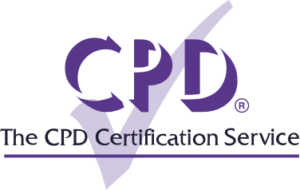In this Education CPD Guide
Why do people in education need CPD?

Education workers can include tutors, pastoral workers, trainers, instructors and other types of educators. They can work in different settings, and some may even be self-employed and deliver tutoring online. Their responsibilities will depend on their role, where they work and the type of students they teach.
Continuing Professional Development (CPD) training is vital for anyone working in the education sector. It enables education workers to have up to date knowledge on policies, standards and legislation. It can also help them identify and address any potential issues and challenges with students and can help them build confidence to deal with difficult situations.
CPD helps improve education workers’ knowledge and skills to better support learners, including those with SEND and any other issues that may hinder their learning. According to Mencap, there are approximately 1.5 million people with a learning disability in the UK (2.16% of adults and 2.5% of children).
What our customers have to say
Dan King
Mobilisation, Training & Performance Manager

Sophie Aiken
HR Manager

Harriet Lee
Retail Recruitment Manager

What CPD courses do people in education need?
Education workers may work with children or adult learners. They will need CPD courses relevant to their particular work setting and the type of students they educate. If they work with children, their CPD should cover topics, such as safeguarding children, mental health in education, understanding bullying and managing challenging behaviour. If they work with vulnerable adult learners, they will need CPD on safeguarding.
Some education workers will also work with Special Educational Needs and Disabilities (SEND) students and may benefit from knowing about autism and ADHD. They also have a responsibility to identify any issues and signs of harm (including those arising from home). Relevant courses may include child neglect, internet safety and prevent and radicalisation.
There are other aspects to consider when providing education inside or outside a setting, e.g. health and safety, fire safety, equality and diversity, data protection (GDPR), first aid and even COVID-19. Knowledge of these topics is advisable for education workers.
Download our CPD trackerA guide to CPD for educators
Education is moving at pace, teaching methods are constantly developing, and learning approaches are continually changing. Therefore, education workers need to keep abreast of the latest developments, standards and legislation. CPD gives them the knowledge and skills to keep up with these changes, which will also help them better support their learners.
Education workers must be competent to carry out their roles and responsibilities effectively. Competence means having a combination of relevant training, knowledge, skills and experience. Regular CPD training is a vital part of achieving and enhancing competency.
There are professional bodies and quality assurance schemes that may make CPD a mandatory requirement for education workers. For example, the Tutors’ Association Code of Practice requires CPD as part of member registration. Some professional bodies may even require members to undertake a certain number of CPD hours annually. If employed, employers may also require workers to undertake CPD as part of their role.
If you are not already aware of the CPD training required for your role and responsibilities, you should ask your employer or check current professional development standards for education workers. You can also think about where the gaps are in your knowledge and skills and which areas you could improve. For example, you may find dealing with challenging behaviour difficult and taking a relevant course may help you overcome this. Our e-learning courses will help you with your CPD.
CPD courses
Many things count towards your CPD, and they should be relevant to you and your goals as an education worker. For example, you can attend seminars/lectures/webinars, read books/journals, start mentoring or observing and undertake work-based learning. You can also complete e-learning, which will count as part of your CPD.
Our e-learning courses are CPD certified and accredited under the CPD Certification Service. When you complete your course, you will gain an accredited qualification and CPD points (hours). The more training courses you undertake, the more knowledge and CPD points you will achieve.
We have different levels of courses for some areas, e.g. safeguarding levels 2 and 3. If you are looking for more in-depth knowledge on a topic, then a level 3 course would probably be more suited to your needs.
To make the most out of your learning, you should adopt a structured and consistent approach to your CPD by undertaking training that meets your personal development needs.
CPD certificates
Once logged in, you can work through your course in a few hours (depending on the type), and there is no time limit for completion. You can work through it at your own pace at a location of your choice. Very rarely do students need help, but if you do, our staff are here to assist.
After completion of your course, including passing the quiz, you can download your PDF certificate immediately. Our professional-looking certificates are fully CPD regulated. They can provide evidence of training to regulators, professional bodies, awarding bodies and prospective employers.
You can log onto your account at any time and download your certificates. You can keep them on file or email them to others who require evidence, e.g. you can send them to parents and adult learners to demonstrate your extra knowledge. It is easy to print off a hard copy of your certificate and keep it with your other qualifications and awards in your CPD portfolio. You will also receive a copy of your certificate in the post.
Logging CPD hours
Every course that is CPD accredited will have a number of points assigned to it. One CPD point is equal to one hour of active learning, which means that you will get one point for every hour you spend on a CPD activity.
The number of points you will earn on completion of the course is in the course description, along with an estimated time to complete. This will give you your CPD hours.
You can keep a log of your CPD hours for the year and make a record of whether you have met your learning objectives. It is important to maintain an accurate CPD record as part of your CPD portfolio and personal development plan (PDP).
Logging CPD hours and keeping training records will have a positive impact on your career. Also, knowing more about the issues that can affect students’ learning will help you become a better education worker.
Keeping evidence
Your certificates and any other documentation relating to your CPD should be retained as evidence. Some professional bodies require CPD records to be kept for a period of five years, and employers may want you to keep them for longer. You will need to check any requirements for CPD documentation retention times specific to your role.
There is not a prescribed format when recording your CPD. Although, you may be required to use a specific format by an employer or professional body.
Your CPD record may be audited by your employer (if employed) or by an external party, such as awarding bodies and professional bodies. This is another reason why keeping evidence of your CPD is important.
Renewing CPD certificates
It is recommended that you renew your CPD certificate every two years. However, you may be required to complete a refresher every year. This will depend on your work setting and what your role entails.
Refresher training also counts towards your CPD. Therefore, you can log CPD hours for every course you undertake, including those taken as a refresher.
























